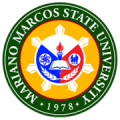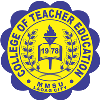MMSU posts 86.21% passing rate in radio operator exam
College of Industrial Technology – After a request for re-checking was granted by the National Telecommunications Commission (NTC) Central Office in Quezon City, 25 out of 29 examinees from the college passed the November 2011 Radiotelephone Operator Examination, thereby giving MMSU 86.21 percent passing rate against the national record of 53.19 percent.
The official result rectified the earlier release of the agency sometime in January which bared that MMSU had only three passers. Worse, they were classified as third-class radio operators, the lowest in the hierarchy of radio operators.
“The re-checking was done through the initiative of NTC Baguio City. There was a problem on the computerized checking of the answer sheets. It was the first computerized radio operator exam, that’s why,†said Prof. Raymund R. Baniaga, electronics and communications technology professor and on-the-job training coordinator of CIT.
From the 25 passers, 22 were classified as first-class radio operators while three were categorized as third-class. All of them are junior and senior electronics and communications technology students.
The first-class radio operators are: Jervis C. Aguda, Arnel G. Agustin, Mary Chris N. Agustin, Czarinae Ashley L. Alagos, Dick Charlie A. Alejandro, Dominic C. Alnas, Jeramie D. Basilio, Fred M. Dawey Jr., Jonbee R. de Ocampo, Dexter V. Gaba, Aldrich C. Jose, Jerry Eric T. Lagazo, Joni C. Luis, Paul Christian M. Lumbo, Edmund L. Pagdilao Jr., Junrey B. Pudiquet, Tristan Allan C. Purisima, Harry B. Ramoran, Renn Jay B. Rubio, Christopher B. Simeon, Allan Tejada, and Emar James B. Tomas.
The third-class operators, on the other hand, are: Bernard T. Crisostomo, Melody S. Layus, and Marfel P. Palada.
The Radio Operator Examination is a non-professional test annually administered by NTC to screen qualified examinees to serve as radiotelephone operators in radio, television, and other telecommunications establishments. A passer is given an operator certificate which lasts for three years and renewable thereafter.
To be classified as first-class radio operator, an examinee must obtain an average of at least 70 percent, provided that he does not incur a rating of less than 50 percent in any of the four elements being tested: Element 1 – basic law and provisions of the radio laws and regulations; Element 2 – basic theory and practice on technical matters appropriate for the license; Element 3 – theories and practices of radiotelephony; and Element 4 – advanced radiotelephony with theory and practice of broadcast station operation.
An examinee who scores an average lower than 70 percent, provided that he does not incur a rating of less than 50 percent in any of the elements, is awarded either a second or third-class operator certificate.
Gallery
Dear Valued Client,
We will be introducing our newly upgraded website on October 31, 2024 – offering faster access, improved navigation, and enriched content for students, faculty, partners, and stakeholders. Experience how we cultivate minds and transform futures at MMSU.

 CAFSD
CAFSD CASAT
CASAT CAS
CAS CBEA
CBEA CCIS
CCIS COE
COE CHS
CHS CIT
CIT CTE
CTE COM
COM CVM
CVM Graduate School
Graduate School




